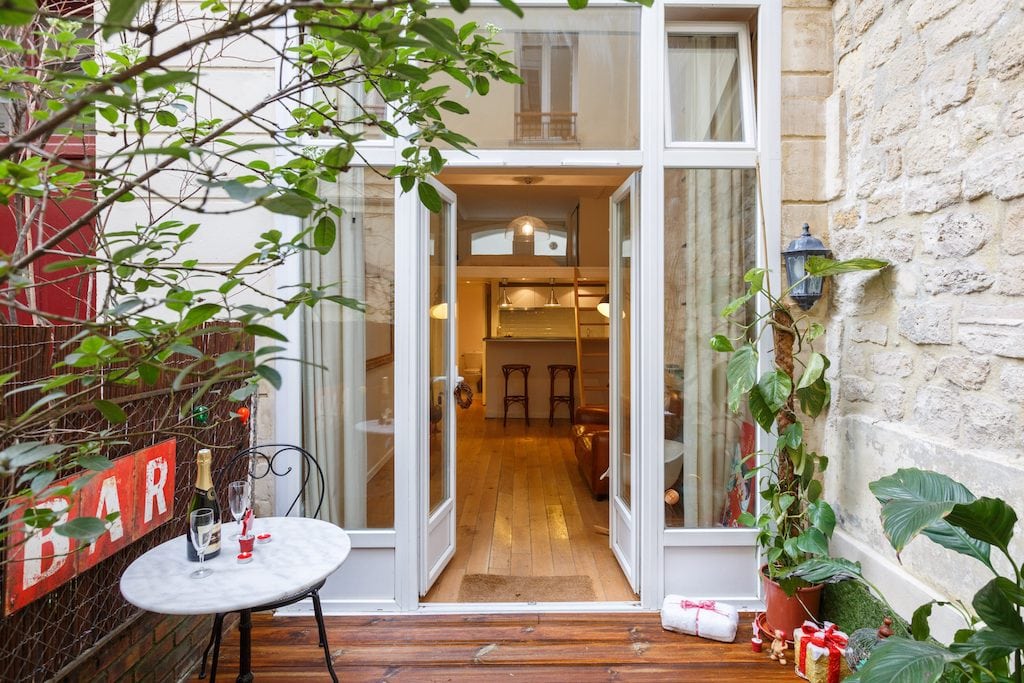Airbnb's Response to Paris Lawsuit Is the Same Old Story

Skift Take
Airbnb's No. 1 market in the world, Paris, is not happy with the platform's business operations.
The city is suing the online travel company, as well as its homesharing peers Paris Attitude and Wimdu, in a lawsuit that could have a lasting impact on how short-term rentals are regulated in major metropolitan cities.
Paris wants Airbnb and other platforms to ensure that any short-term rental listings on their sites without a formal registration number, as well as those that do not comply with the city's 120-day annual cap rentals, are removed.
If the city wins its case on June 12, up to 43,000 of Airbnb's listings in Paris, which account for two-thirds of its 65,000 listings, may disappear from the platform.
The city instituted a 120-day cap on short-term rentals in four of its 20 arrondissements in November. And in December, the city required Parisians who engage in short-term rental activity to have registration numbers.
Like many other major cities around the world, Paris has had a contentious relationship with Airbnb, with an estimated value of $31 billion. It is the homesharing giant's biggest market, both in terms of number of nights booked and the number of listings.
In each of its previous regulatory battles, whether in New York, San Francisco, London, Barcelona, or Berlin, Airbnb's playbook for handling these situations is very much the same, despite the differences in local laws. Paris is no different.
Airbnb's official statement on the Paris lawsuit reads: "We are disappointed by this decision, which will hurt local families who share their homes and puts their needs behind the financial interests of big hotel chains and well-funded lobby groups. Homesharing rules in Paris are complex, confusing, and designed for professional operators and big businesses. We will continue working with Paris on clear and simple rules that work for everyone — not just big businesses."
It's a response we've heard time and again from the company when it comes to its regulatory battles.
Here's a breakdown of the company's five defense points.
1. This Hurts People Just Trying to Make Ends Meet
The Airbnb Citizen site is filled with profiles of individual Airbnb hosts who are using the platform to earn additional income and improve their daily lives, and the company continually publishes data touting how Airbnb helps hosts afford to stay in their own homes.
Most recently, the company said 54 percent of Airbnb hosts around the world are using it to be able to afford to live in their own homes.
"We do want to tackle bad actors and we don't want people on the platform who are impacting housing negatively," Aurélien Perol, head of public affairs communications for Airbnb in France and Belgium told Skift. "We want to find a good way to tackle that. The current scheme just doesn't work and it's impacting regular Parisians who just want to make extra money on Airbnb and improve their daily lives."
But as conflicting studies and reports from Airbnb and its opponents have shown over the years, it's not always clear how much of Airbnb's business in any one jurisdiction is being carried out by "casual homesharers" or more professional, commercial operators.
Airdna, a company that tracks data related to Airbnb, estimates that in Paris, approximately 35 percent of Airbnb's hosts have multiple listings, which might suggest they operate more like a professional or commercial renter of homes. Sixty-five percent have just a single listing.
It also notes that about 56 percent of Airbnb's total 65,000 listings for Paris are considered "active" or are regularly booked. That means that a little less than half of its listings might be considered inactive. Airbnb has said that one-third of its listings in Paris have never been booked, and 90 percent of its listings in Paris have been rented out for less than 120 days a year.
The proportion of commercial operators versus casual homesharers in any one jurisdiction varies from city to city. And no two cities' short-term rental regulations are the same.
But it's clear that Airbnb wants to emphasize the narrative that the majority of its hosts are not commercial operators, despite the fact that the company is actively trying to grow its business with independent hotels as well as professional vacation property managers.
2. These Laws Just Don't Work
Another argument often deployed by Airbnb in its regulatory battles is that whatever laws or regulations cities have come up with just aren't adequate enough, or are simply too complicated for people to understand or to comply with.
"What we've noticed in Paris is that professional hosts [those who rent out their homes more regularly or even hotels that advertise their rooms on Airbnb] are registering in numbers, whereas regular citizens don't," Perol said.
He emphasized that while most active Airbnb hosts were registering their listings, those who rent out their homes only occasionally "are reluctant to do it" and "they don't see the point of it." He likened the situation as more of a miscommunication between short-term rental hosts and the city over why there's a requirement for short-term rental registration.
He also pointed to Berlin, which previously had very strict laws regarding homesharing but recently voted to relax them.
"You could only rent a room before, not an entire home, and there was a lot of red tape to go through to get a permit and it was very hard to get them," Perol explained. "People in Berlin sued the city asking for them to change the system, and in the end, they had to change the system for something more useful and easy to understand."
We also saw this argument play out in the company's hometown of San Francisco, but with a different outcome.
In 2016, Airbnb said the city's registration system was just too complicated and difficult for people to use to explain a government report that showed nearly 80 percent of its hosts were not registered.
But after being sued by the city of San Francisco in 2016, Airbnb settled in May, 2017, by agreeing to automatically register all local hosts in the city to comply with short-term rental laws that went into effect in 2014.
That agreement significantly impacted the company's business in San Francisco, however. By January, 2018, when the deadline for all Airbnb and HomeAway hosts to register with the city arrived, the number of Airbnb listings for San Francisco dropped dramatically. A San Francisco Chronicle report showed a drop from 8,740 listings in August, 2017, to 4,191 in January, 2018 — a decrease of 52 percent.
When asked if Airbnb would consider complying with Paris officials and doing something similar to what it is currently doing in San Francisco, as well as Chicago and New Orleans, with automatic registration, Perol emphasized that regulations in the European Union are different from those in the U.S.
"They can do pass-through registration," said Perol of European Union guidance, "but if people don't want to register, we are not supposed to oblige them to do so." Airbnb can only inform hosts of the laws to the best of its ability, and that's what the company has been doing, Perol added.
3. We're Just a Platform
This leads us to the following popular defense that Airbnb often relies upon in regulatory battles: the claim that the company is simply a marketplace and that it cannot, and should not be expected to actually enforce local laws that relate to short-term rentals.
In the European Union, the company refers to those "collaborative economy" guidelines as well as these laws regarding e-commerce.
"In Paris, what the city is asking us to do is look at all of the 65,000 listings that we have in Paris and check to make sure each and every one of them are duly registered," Perol said. "But it's illegal to require a platform to oblige all of its users and monitor all of its users to see if it applies to the law. This is a system that breaks the [E.U.] law."
In the U.S., the company refers to Section 230 of the Communications Decency Act (CDA) that protects websites from being liable for content posted by third parties on their platforms.
More recently, however, some judges have decided to push back against the law in the U.S., as seen in San Francisco. If more lawmakers in the U.S. are able to craft legislation that circumvents laws like the CDA, that could have some serious implications as to how Airbnb complies with short-term rental regulations.
4. Let Us Help You (Help Us)
Airbnb has also repeatedly emphasized that it does want to work with local jurisdictions to craft better short-term rental regulations that work for everyone. Often times, the company will propose the establishment of tax collection agreements.
In Paris, Airbnb's Perol said the company asked the city to consider working with Airbnb on placing an automatic cap that doesn't allow hosts to rent out their homes for more than 120 days per year. It's similar to the agreement the company has in London, where Airbnb hosts are automatically prevented from renting out their homes for more than 90 days per year.
But this begs the question: If Airbnb can design its platform to have an automatic limit on the number of days that any one host can rent out his or her home, why can't the company create a design that only allows registered Airbnb hosts in Paris to list on the site?
5. What About the Other Guys?
Deflection is also another tactic that Airbnb employs when discussing regulatory issues and, to be fair, it's not an unjustified ask on their part. Airbnb is often more closely scrutinized and criticized for its handling of short-term rental regulations when other private accommodations players, such as Expedia's HomeAway and Booking Holdings' Booking.com, are not.
In Paris, Airbnb noted that Booking Holdings did not receive the same notice from Paris City Hall to remove listings that do not have registration numbers.
An article published in Le Monde noted that Booking.com only publishes home listings in Paris that have registration numbers.
"One of the things that is important about our company is obeying the regulations, whatever they are," Booking Holdings CEO Glenn Fogel told Skift Thursday. "We pride ourselves in doing the right thing even though it may not be what other people are doing. They may have a short-term business advantage, but we play for the long run."
When asked if Booking Holdings needs to do a better job of policing hosts, Fogel said he spoke with the company's general counsel on Wednesday to discuss whether additional steps are required to ensure that Booking Holdings and its hosts are in compliances with local regulations around the world.
"What do we need to do as we build out our listings worldwide to ensure we are doing what we set out to do, to do the right thing," Fogel said. "Do we need additional systems? Do we need additional processes? Will we be able to make sure that we walk the walk, and not just talk the talk?"
Fogel didn't cite any specifics but added that he and his general counsel agree "that is the way we have to go."
"We welcome a level playing field in all parts of our business, not just in terms of regulations on home rentals," Fogel said.
A Never-Ending Story
This most recent regulatory battle for Airbnb echoes many others that have come before it. And while Paris is significant because it is Airbnb's No. 1 market in the world, whatever results from the lawsuit will impact not just Airbnb but all participants in the private accommodations space — Booking and Expedia included.
We can and should expect Airbnb to continue taking the same stance it's taken in previous battles and, to some, despite all the give-and-take between Airbnb and cities, it's likely Airbnb will come out on top in the end.
"All of the regulatory crackdowns for Airbnb are not really bad news for them," Eric Goldman, a professor at Santa Clara University School of Law and an expert on legal issues relating to websites, told Skift last year.
"They'll figure it out, they'll navigate and shut the door on anyone else who wants to compete with them. It's a tough position for them to be in because regulators are gunning for them, but they could also be in a winning position. I think they're setting themselves up as a winning model for the future, and every time Airbnb strikes a deal [with a city], they are putting a little more distance between themselves and their competitors, who just can't catch up."
—Skift Executive Editor Dennis Schaal contributed to this report.




